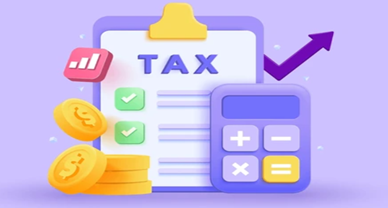INCOME-TAX BILL, 2025
INTRODUCTION:
Replacing an almost six-decade-old Income-Tax Act, 1961, new bill has been introduced by government in Lok Sabha on February 13, 2025. This new bill is a step towards reframing and transforming direct tax framework in India through modernising and rationalising tax laws without disturbing existing rates or structure of tax. The bill mainly focuses on simplifying legal language, repealing unnecessary provisions, and aims to build efficiency, transparency, and accountability.
Recently, this bill was withdrawn by the government on August 8, 2025, and was reintroduced on August 11, 2025, after considering the amendments and the feedback. Addressing business realities and tax issues arising in today’s world, this significant step has been undertaken by Government. There are few prominent changes like expanding the ambit of undisclosed income, covering virtual digital assets, analysing tax treaties, etc.
Therefore, this income tax bill covers modernised form of the world and aligns with digital economy by taking into account main principles of tax administration and structure.
WHY WAS THE ORIGINAL BILL WITHDRAWN?
Considering several contradictory and drafting issues, the Finance Minister of India, Nirmala Sitharaman, decided to perform revision. There were few key reasons involved, like:
- Drafting inconsistencies and required correction of few terminologies.
- It required a smooth and aligned structure of tax.
- In today’s contemporary world, it required digital tax provisions.
- For making cross reference corrections.
These are the general issues highlighted for withdrawal of the bill. But, there are few specific issues pointed by parliamentary committee like:
- Clause 21: property’s annual value
It had issue with language of provision related to vacant properties.
- Clause 22: deductions from house property income
It dealt with issue of lack of clarity based on deductions.
- Clause 19 of Schedule VII: salary deductions
Issue with ambit of persons involved in pension deductions.
- Clause 20: commercial property classification
Issue of clarity on the basis of temporarily unused commercial property as house property.
Committee highlighted these specific issues and aimed to introduce fairness, transparency, interpretation, and consistency.
KEY FEATURES OF NEW INCOME TAX BILL
Undermining critical framework of direct tax in India’s tax law, this new bill aimed to introduce a dynamic, wide, and modernised framework by replacing 298 sections of the previous Income Tax Act.
- Simplification of language: aims to minimise highly legal language, repeal unnecessary provisions, and focus more on compliance with other provisions.
- Tax rates: without affecting tax rates, rules of capital gains, ambit of income, etc.
- Penalties: penalties were lowered for a specific sector to promote cooperate tax.
- Legal disputes: bill focused on reducing unnecessary legal disputes.
- Digital provisions: introduced a concept of ‘tax year’, through Central Board of Direct Taxes (CBDT), for distinguishing between financial and assessment years, and introduced digital mechanisms and framework.
This bill has 23 chapters, 536 sections, and 16 schedules. To enhance clarity and interpretation, as it includes tables and formulas as well.
CHANGES IN NEW BILL
The general changes are already mentioned hereinabove but, there are few specific changes undertaken in this new bill:
- Exemption limit: it have been increased up to 12 lakhs income, with deduction of 75,000 Rs., which will be 12.75 lakh.
- Tax slabs: they have been revised for financial year 2025 -26 onwards (ranging from 0% to 30%), depending on income.
- Rebate: it have been increased u/s 87A up to 60,000 Rs.
- Digital assessments: to reduce personal interface or any form of harassment, bill has introduced all assessments and appeals to be done via online mode.
- Refunds: it is one of the most crucial provision added under clause 263, whereby taxpayers can avail TCS/TDS refunds even after filing the deadline without any penalty.
- Donations: where nature of donations that is unidentified, those cannot be constitutes as a part of religious or charitable trusts, until and unless they are for social services.
IMPACT ON NRIs
The new bill have created an impact on NRIs, which is as follows:
- Tax payment: salary of NRIs, that range from 15 lakh or above in India, and are not paying any tax, are regarded as residents for purpose of tax payments.
- Tax rates: tax rate for dividend income will be 20%;
dividends in IFSC will be at 10% rate;
foreign currency loans: 20%;
interest from debt funds of infrastructure: 5%; and
20% on mutually funded income in foreign currency.
- TDS: income earned by NRIs, that is taxable in nature, will be included for TDS.
- Formalities before leaving: any NRI before leaving country has to submit their PAN (Permanent Account Number), travelling purpose, and expected duration of stay in abroad. A certificate has to be submitted to authorities, if fails to perform above mentioned formalities.
- Key provisions: clauses 5, 60, 61, 174, 207, 209, 211, 213, 215, 216, 217, 306, 422, 505, are provisions that affect NRIs.
KEY TAKEAWAYS
New income tax bill, aimed to replace old income tax act, to simplify it and eliminate maximum complexities on its interpretation, understanding, or language. This bill includes various amendments based on digital era and contemporary issues. Main highlights include –
- Clarity and simplification in provisions, including tabular forms.
- Inclusion of tax year, reduces technical complexities in determining tax structure.
- Virtual digital asset included, which showcases inclusion of more technology and digital world.
- Bill will be taken into force from April 1, 2026.
- Bill compared with old act, clearly states how Income Tax Department takes different changes into consideration.
- Main aspects of definitions, tax rates, rebate, TDS, TCS, are amended which brings wide shift in tax structure of India.
CONCLUSION
Income Tax Bill, 2025, will be enforced from April 1, 2026, which creates a huge impact and changes in India’s tax policies and law. These changes are done in such a way that they reduce complexities and lead to a simplified, contemporary, and understandable. Major changes that have been made are already mentioned, which cover most important provisions. Publication of this bill, led to undertaking the feedbacks and consultations, for any other further amendments. This showcases flexibility, adaptability, and updated law coming into force. Through these new amendments being undertaken, it clarifies the ambit of interpretation and transparency for a layman as well. This bill will create a huge change in tax administration, which will make further changes to residents or non-residents of India.
Author:– Chehak Goel, in case of any queries please contact/write back to us at support@ipandlegalfilings.com or IP & Legal Filing.
REFERENCES
[1] New Income-Tax Bill 2025: Why has Centre withdrawn the bill from Lok Sabha? Revised draft to reflect parliament panel suggestions. – The Times of India.
https://timesofindia.indiatimes.com/business/india-business/new-income-tax-bill-why-has-centre-withdrawn-the-bill-from-lok-sabha-revised-draft-to-reflect-parliament-panel-suggestions/amp_articleshow/123186665.cms
[2] The Income-Tax (No.2) Bill, 2025 – PRSIndia. https://prsindia.org/billtrack/the-income-tax-no2-bill-2025
[3] Income Tax Bill, 2025 withdrawn: Why govt pulled back original proposal & what are panel’s suggestions – The Economic Times.
https://m.economictimes.com/news/economy/finance/income-tax-bill-2025-withdrawn-why-govt-pulled-back-original-proposal-what-are-parl-panels-suggestions/amp_articleshow/123186182.cms
[4] Income-tax Bill, 2025 – CBDT https://incometaxindia.gov.in/Pages/income-tax-bill-2025.aspx
[5] New Income Tax Bill 2025 passed in Parliament: key features, what changes – The Indian Express. https://indianexpress.com/article/explained/explained-economics/new-income-tax-bill-passed-in-parliament-key-features-10186767/lite/
[6] Income-tax Bill, 2025: Impact on Non-Residents – Nishith Desai Associates. https://nishithdesai.com/fileadmin/user_upload/pdfs/nda%20In%20The%20Media/news%20Articles/Income-tax-Bill-2025-Impact-on-Non-Residents.pdf



